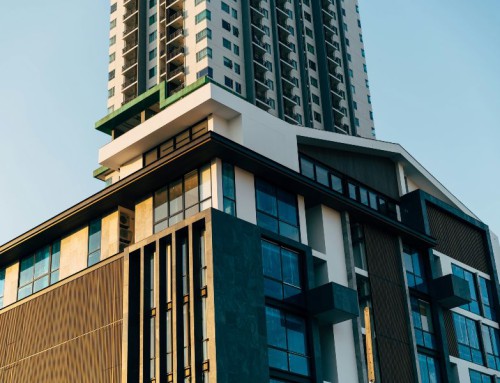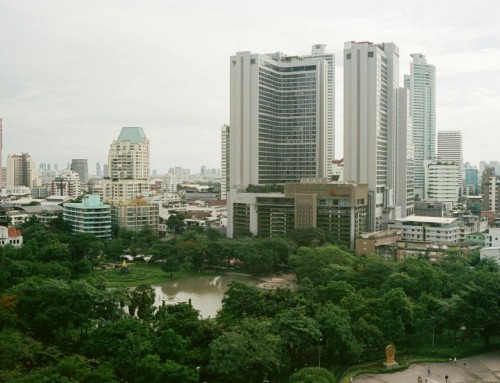Speculation is a very dangerous thing. However, truth be told, much of the market, be it real estate or equities, is involved in speculative activities. To understand speculation, we first need to agree on a set definition.
Speculation is difficult to define. However, I believe that the definition can be broken down into a few parts:
- Speculation is when one purchases something with the intention of selling it for a higher price in the future; and
- The purchase is largely premised on the belief that the market will continue in an uptrend; and
- The purchase is largely premised on the purpose of selling it for a higher price in the future.
“largely premised” means that the individual’s main consideration is on that particular fact. There may be other factors that may drive the purchase but if this particular fact is not present, it is highly unlikely that the individual will make that purchase.
An example would be an individual buying a property with the main consideration that he will be able to sell it for a higher price in the future. He may be buying the property as a home for his family and there may be other considerations like facing and layout. However, if the property does not have his desired facing and layout but he believes that he will be able to sell it for a higher price in the future, it will still be considered. On the flip side, if the property has his desired facing and layout but he believes that he will not be able to sell it for a higher price in the future, he will not consider it.
“In the future” would mean any time ahead of the present. It could be that the individual purchases the option and resells it for a profit within a very short period of time. Probably within a few weeks or possibly months. It could also be an individual who sells the property after a number of years. It could be someone who sells it after 20 years. The shorter the period, the higher the inference of speculative intent.
My take is that property investment has somewhat shifted to that of property speculation. The truth of the matter is that this is something that very few individuals are unwilling to admit. The fact that an individual walks into a show flat or a property on sale with the intention of figuring out whether he is able to dispose of the property at a later date at a higher price supports the inference that he is a property speculator. Property, in its intrinsic form, is shelter. As we progressed as a society, we started to demand that the property that we lived in suited our lifestyle. The typical property buyer in the past would be looking for a property that suited his lifestyle. A typical nuclear family would probably consist of a husband, a wife and two children. Hence the demand for a 3 bedroom apartment. If they had a helper, then they might request for a helper’s room which typically would be tucked away behind the kitchen. In Singapore, there were condominiums with two entrances. There was a main entrance and another entrance that led directly to the kitchen or wash area. This was to accommodate situations where groceries needed to be carried to the kitchen area. Today, the main draw of a development would be its location and the catchment area. Can it be rented out and can it be sold for a profit later? Walk into any sales gallery, not only in Singapore but in any city where property prices have appreciated substantially in the last decade and you will see more information about the growth potential of the development on show rather than focusing on how the unit can suit the lifestyle of the people who are going to live in it.
The typical Chinese buyer is the perfect epitome of a property buyer with great regard for the appreciation potential of the property rather than one that focuses on the property being a shelter for his family. It does not help that China is a very vast country and travelling to view properties in and around the country is not a very convenient thing. Hence there were many Chinese who bought the property without actually even travelling to visit the actual site of the proposed development. It does not matter whether you are A typical property brochure is never the same as how the property is when it is completed. The fact is, property, especially if that is one’s only property, is a place of shelter first and perhaps a form of investment second.
So then what went wrong? The news would want you to believe that it was because the Chinese government imposed borrowing restrictions and limited the flow of credit through the property market. The truth is that this is what a responsible government would be doing. For the better part of the last two decades, Chinese property buyers have been profiting from buying and selling properties. While many Chinese property buyers would like to say that they made calculated investment decisions which resulted in them making a profit, the truth is that the exuberance in the market is the primary and perhaps arguably the sole reason why their properties turned a profit. My take has always been that while I agree real estate has intrinsic value because it is a physical asset, I do not agree that it is always a stable investment. The people who are looking to get buyers to buy are always going to reiterate the mantra that real estate is a safe investment and that in the long run, it will turn a profit.
It does not help that valuations are based off recent transaction prices. This means that valuations move in tandem with speculation. If the property market is booming, valuations support this boom. The problem is that buyers equate valuation with intrinsic value. They are not the same.
Imagine a formula like this:
Intrinsic value + Premium = Selling Price
So what is Intrinsic Value?
It is the actual value of the property if all the participants in the market are rational. A rational market participant is one who does not succumb to the fear of missing out syndrome and understands that a property is an illiquid asset which takes time and cost to dispose of and maintain. He is also one who does not believe that property investment is the best form of investment but instead believes that property investment should form a portion of an otherwise balanced investment portfolio which consists of other assets.
Now what is Premium?
It is the price that market participants are willing to pay above the intrinsic value. What commands the premium? The level of speculative intent, the level of rational market participants. In fact, it is a correlated relationship. The higher the level of speculative intent, the higher the premium and vice versa.
Think about the Chinese property market, its actual intrinsic value and the premium. Market participants in the Chinese property market were almost all speculators. It was always a fear of missing out that drove buyers to show flats. As the speculative intent was high, the premium was similarly high. As the intent got higher, the premium similarly got higher. Add those two together and you can see that you will get a very high selling price. That drove it to where it is today.
Only in a market crash will buyers then start to rationalise. Those who are burned will start to exit the market. The ones who are rational and less speculative will eventually enter. The intrinsic value will always remain the same. However, the low level of speculative intent in the market dictates a similarly low level of premium. Hence the selling price for the same property will become lower.
Are there lessons to be learned from the Chinese property boom and bust?
Well, yes. The Chinese are not an unintelligent group of people. In fact, the Chinese very bright people. The truth is, it is never always about intelligence alone. Human emotions and greed permeate every corner of the globe. It weeds out rational thinking and sensibleness. This is why boom and bust cycles exist. Despite governments around the world trying to prevent the next market crash, the fact of the matter is that they will still happen. So the next time you walk into the show flat, perhaps it would be wise to think, how high is the speculative intent and what is the premium that is being added on top of the intrinsic value.
Hey, I am no Ray Dalio or Warren Buffet. However, I do enjoy directing human behaviour in relation to the property market to try to make sense of what is going on.
Yours sincerely,
Daryl Lum






